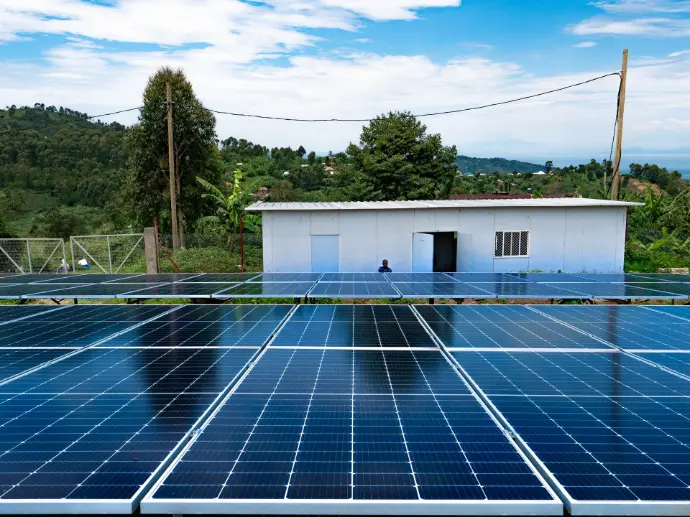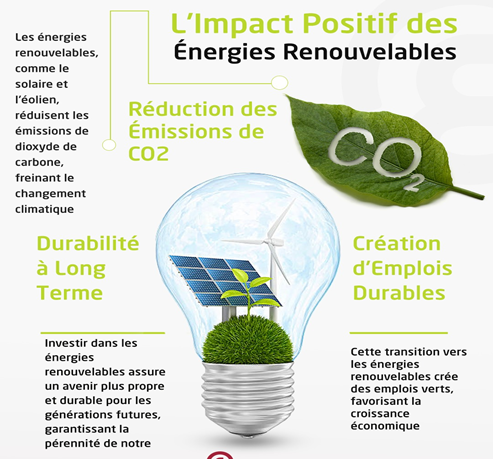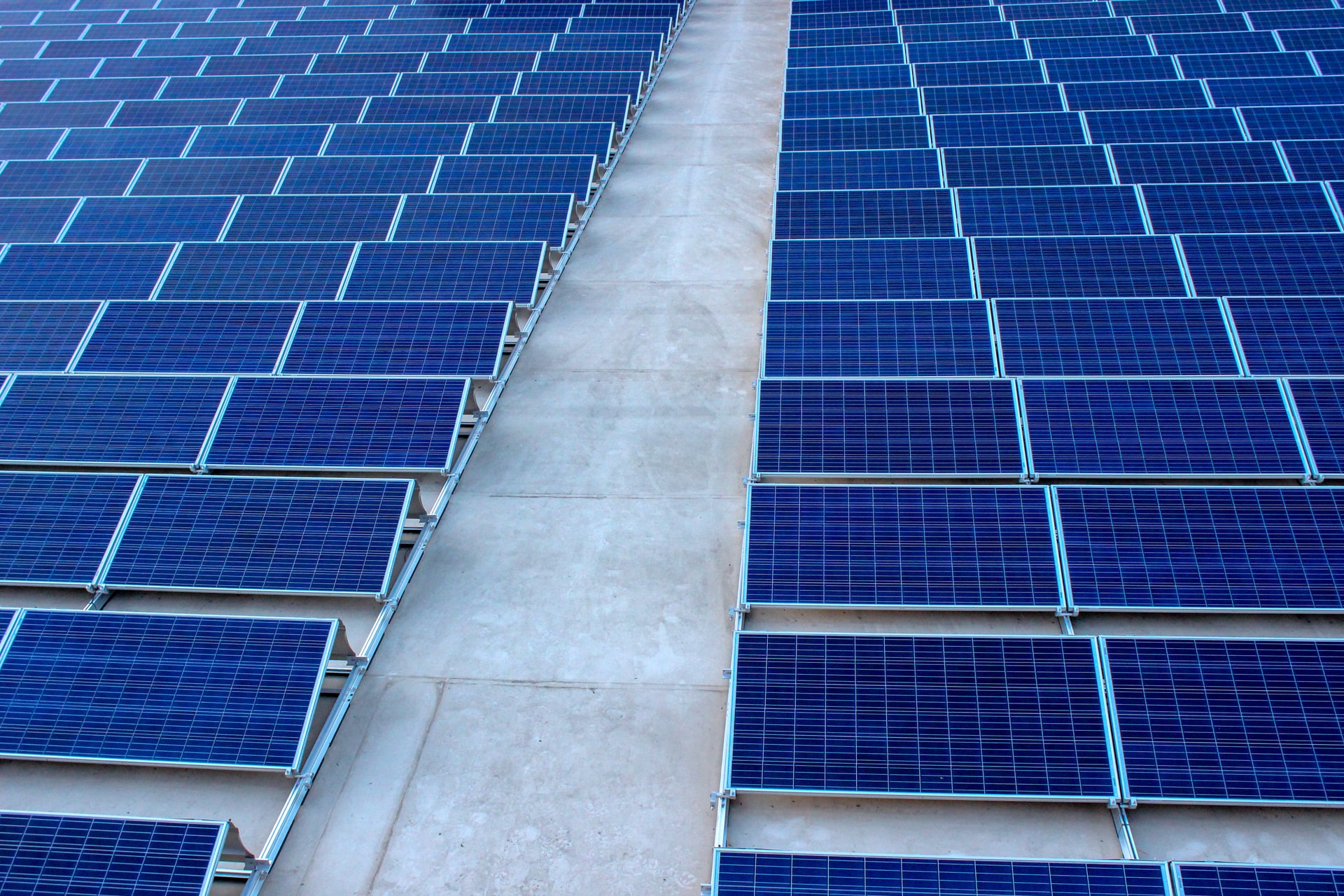In the face of growing climate challenges and the urgent need to reduce greenhouse gas emissions, green energy is often seen as the key to sustainability. But behind this promise lies a more complex reality: is this transition really an opportunity for a better future, or could it bring unexpected risks and challenges? The stakes are high, and each decision could shape tomorrow's world.
Opportunity: Towards a sustainable and economic future

GoShop's projects for solar photovoltaic minicentres, low-voltage (LV) grids and household connections in regions such as Wembonyama, Mweka, Lubefu and Tshumbe mark a significant step forward in the Democratic Republic of Congo's (DRC) energy revolution. These initiatives will provide thousands of households with access to clean, reliable and sustainable electricity, transforming the lives of local communities and playing a crucial role in reducing greenhouse gas emissions.
These projects are perfectly in line with the DRC's vision for a sustainable energy transition, aimed at reducing dependence on fossil fuels. The green energy sector opens up multiple opportunities: it contributes directly to the fight against global warming, while strengthening the country's energy independence. By reducing its dependence on fossil fuels, the DRC is paving the way for a more prosperous, enlightened and environmentally-friendly future.
What's more, this transition to a green economy is generating new jobs and stimulating technological innovation, transforming not only the energy sector, but other key sectors of the economy as well. A major player in this dynamic, GoShop, is contributing its expertise and experience in renewable energies, facilitating access to solar energy and supporting the development of renewable energies.
Threats: Challenges and obstacles to overcome
Although renewable energies offer many environmental benefits, their large-scale deployment poses several major challenges.

1. High initial costs and need for government support
The infrastructure needed to produce renewable energy, such as solar panels, wind turbines or energy management systems, requires a substantial initial investment. To be competitive with conventional energies, these technologies often depend on subsidies or government support, which can represent a financial burden, particularly for developing countries.
2. Intermittency and the need for storage solutions
The intermittency of renewable energy sources, such as solar and wind power, represents another major challenge. Their production is dependent on weather conditions, making their reliability sometimes uncertain. This necessitates complex and costly storage solutions, such as batteries or energy management systems.
3. Environmental and social impacts

Environmental impact
Despite their cleaner nature, renewable energies also have significant environmental and social impacts. The manufacture of solar panels, wind turbines and batteries involves the extraction of rare materials, which can harm local ecosystems. What's more, these manufacturing processes generate greenhouse gas emissions and consume resources.

Social impact
From a social point of view, the transition to renewable energies can cause economic upheaval in regions dependent on fossil fuel industries. The closure of coal mines or oil installations can lead to job losses and social tensions. Accompanying policies are therefore crucial to ensure a fair and inclusive transition.
4. Complexity of integration into existing systems
Finally, the rapid integration of renewable energies into existing energy infrastructures is a complex challenge. Careful planning is essential to ensure that this transition does not generate new environmental or social problems.
Green energy potential in Africa
Africa has exceptional potential for the development of renewable energies, thanks to its abundant natural resources, particularly solar, wind and hydro power.
1. Improving access to electricity and reducing dependence on fossil fuels
Green energies could transform access to electricity, particularly in rural areas. They would offer a sustainable alternative to fossil fuels, reducing the continent's energy dependency and helping to combat climate change.
2. Job creation and economic stimulation
The renewable energies sector could also generate local jobs, while stimulating African economies. In the Democratic Republic of Congo (DRC), for example, the country has significant biomass resources, despite ongoing deforestation. The country also has great potential for producing energy from forest and agricultural waste, as well as methane from Lake Kivu, with reserves estimated at 50 billion m3.
3. Specific initiatives in North Africa
Morocco stands out in the field of renewable energies, having achieved 19% of its electricity production from renewable sources in 2020, with an ambitious target of exceeding 50% renewable electrical energy by 2030. The country has already put in place massive wind and solar infrastructures, helping to reduce its carbon footprint and create jobs.
4. Challenges to overcome
However, the development of renewable energies in Africa requires overcoming logistical hurdles, notably for the collection and management of agricultural and forestry waste, which is often inefficient. What's more, some countries, such as Egypt, have revised their 2040 renewable energy targets downwards, underlining the persistent dependence on natural gas in their energy mix.
Although renewable energies offer immense potential for the African continent, their implementation still faces major challenges, particularly in terms of infrastructure, energy storage and socio-economic impact. Strategic planning and international cooperation are essential to overcome these obstacles and maximize the environmental and economic benefits. The success of this transition will depend on our ability to anticipate obstacles, innovate and work together.

Towards green energy: Opportunity or Threat?